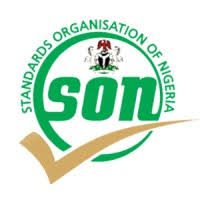


IMF urges Nigeria to fully implement cash transfer program before subsidy reforms
By Sodiq Adelakun
The International Monetary Fund (IMF) has called on the Nigerian government to ensure the full operational capacity of its cash transfer program aimed at supporting vulnerable households.
This move is recommended as a necessary precursor to the planned reevaluation of the nation’s substantial fuel and electricity subsidies.
In a statement released after an IMF team’s visit to Nigeria, the Fund highlighted the importance of the social safety net program, which is intended to provide financial assistance to the poor and vulnerable.
The IMF stressed that the full implementation of this program is essential to protect the economically weaker sections of the society before any adjustments are made to the current subsidy system for fuel and electricity.
The IMF’s concerns are based on the significant fiscal pressures that arise from the ongoing subsidies. During the visit, which was part of the 2024 Article IV Consultations, the IMF team, led by mission chief Axel Schimmelpfennig, held discussions with Nigerian officials in Lagos and Abuja from February 12 to February 23, 2024.
The IMF warned that if Nigeria continues to cap fuel pump prices and electricity tariffs below cost-recovery levels, it could face fiscal costs of up to 3% of its Gross Domestic Product (GDP) by 2024.
The statement also noted some positive developments, such as recent improvements in revenue collection and oil production, but pointed out that Nigeria’s low revenue mobilisation limits the government’s ability to respond to economic shocks and hinders long-term development efforts.
The statement read partly, “Recent improvements in revenue collection and oil production are encouraging. Nigeria’s low revenue mobilisation constrains the government’s ability to respond to shocks and to promote long-term development.
“Non-oil revenue collection improved by 0.8 percent of GDP in 2023, helped by naira depreciation. Oil production reached 1.65 million barrels per day in January as the result of enhanced security. The capping of fuel pump prices and electricity tariffs below cost recovery could have a fiscal cost of up to 3 percent of GDP in 2024.
“The recently approved targeted social safety net program that will provide cash transfers to vulnerable households needs to be fully implemented before the government can address costly, implicit fuel and electricity subsidies in a manner that will ensure low-income households are protected.”
The IMF notes that despite Nigeria’s economy showing signs of growth in the fourth quarter of 2023, with a GDP growth of 2.8 percent, this growth barely keeps pace with population dynamics.
The Fund further projects an improvement in GDP growth to 3.2 percent in 2024, supported by increased oil production and anticipated better harvests. However, challenges such as high inflation, a weakening naira, and the need for tighter monetary policies are expected to pose significant headwinds.
…On food security and social protection
During its visit, the IMF team praised the Nigerian government’s efforts in addressing food insecurity, which affects approximately 8 percent of the population.
The team also acknowledged the approval of a targeted social safety net programme intended to provide cash transfers to vulnerable households. This initiative, coupled with improvements in revenue collection and oil production, is seen as a positive step towards stabilising the economy.
However, the IMF emphasised the urgent need for Nigeria to address the financial implications of fuel and electricity subsidies. The Fund suggested that before tackling these costly subsidies, the recently approved social safety net program must be fully implemented to protect low-income households effectively.
The IMF also applauded the decision of the Monetary Policy Committee (MPC) to tighten monetary policy further by increasing the policy rate by 400 basis points to 22.75 percent.
This move, aimed at containing inflation, which had hit 29.9 percent year-on-year in January 2024, and alleviating pressure on the naira, represents a total tightening of 1,025 basis points since May 2022.
The elimination of fuel subsidies and other recent policies have had a disproportionate impact on Nigeria’s poor and vulnerable, who stand to benefit greatly from a monthly cash transfer system.
The World Bank earlier said that cash transfers can help save Nigerians from intergenerational poverty traps as inflation and low economic growth adversely affect the poor.
President Bola Tinubu launched a social safety net programme last year that will distribute N25,000 to 15 million homes for three months in observance of the 2023 International Day for the Eradication of Poverty.
The Federal Ministry of Humanitarian Affairs and Poverty Alleviation is tasked with carrying out the $800 million World Bank loan project.
However, the Federal Government had to suspend the cash transfer programme for further investigation and revamping following alleged misappropriations within the programme.



